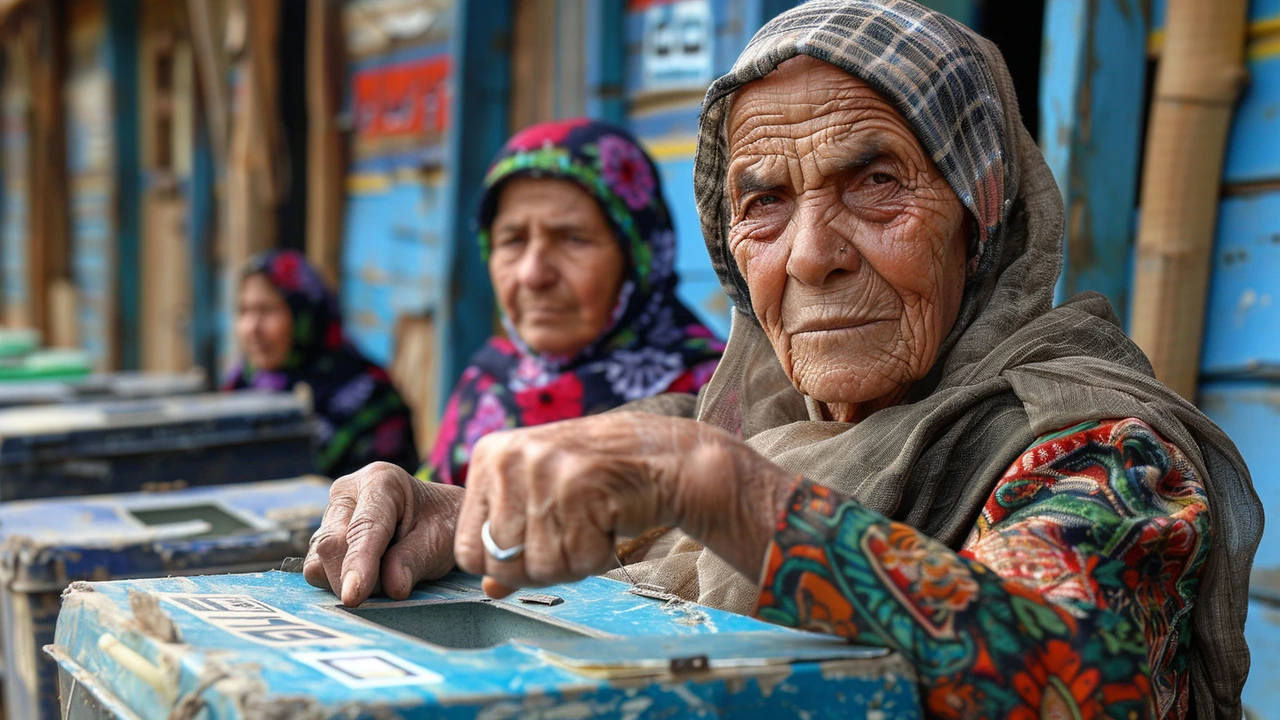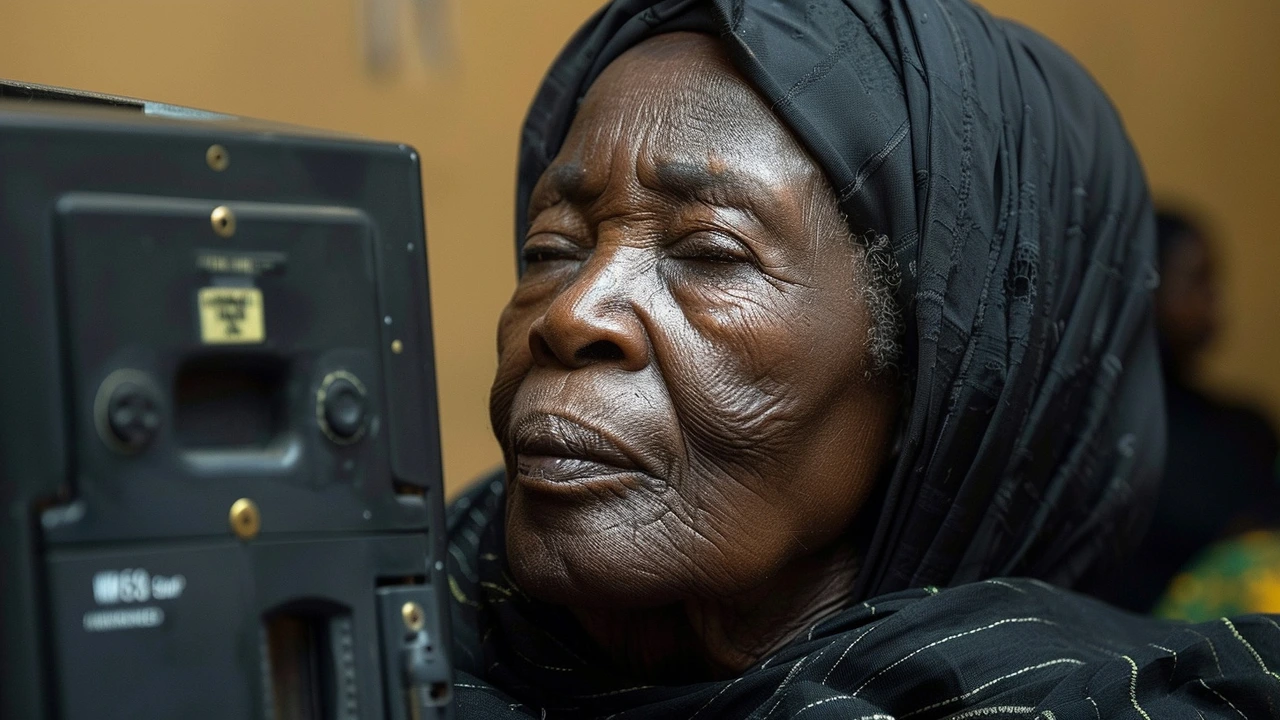Introduction: The Start of 2024's Election Season in South Africa
As the 2024 election season kicks off in South Africa, the air is filled with anticipation and the hope of change. The Electoral Commission of South Africa (IEC) has initiated the process with special votes in KwaZulu-Natal, marking the beginning of what promises to be a memorable election. Special ballots are particularly important as they provide an opportunity for individuals who cannot attend voting stations on the official election day to cast their votes beforehand. This includes a wide range of people, from the elderly to service workers, ensuring that every citizen has the chance to have their say in the country's future.
The Mechanics of Special Voting
Special voting offers a critical solution for those unable to be physically present at voting stations. Over 1.6 million applications have been approved for these early votes. This includes home visits and an early voting system tailored for the elderly and service workers. In this election, the IEC has emphasized the importance of reaching out to all eligible voters, making sure that logistical challenges or personal circumstances do not hinder participation in the electoral process.
Special ballots cast in Durban have already shown a positive turnout. City Hall in Durban became a hive of activity as citizens turned out in significant numbers. Among them was Khatija Khan, an 82-year-old who has been a steadfast participant in every election since South Africa's first democratic elections in 1994. Khan embodies the enduring spirit of South African democracy and underscores the importance of each vote. 'It's not just about casting a vote,' she stated, 'but about making our voices heard and contributing to the nation's direction.'
First-Time Voters: Hope and Ambition
The significance of this election is not only in the experienced voters but also in the new faces who are excited to contribute for the first time. Namhla Mthimkhulu, a young first-time voter, expressed her hopes and dreams tied to this crucial act. 'I am voting because I believe in a better future for South Africa,' she said. 'My vote is a step towards economic growth and the creation of job opportunities. I feel empowered knowing that my voice matters.'
The energy and enthusiasm of new voters like Mthimkhulu highlight the democratic spirit, as residents from different walks of life come together to make a difference. The early voting arrangements are designed to accommodate everyone, encompassing the broad diversity that constitutes South Africa's population.

Political Landscape: Key Figures
Political analysts are keenly observing as key figures prepare to cast their votes. Notable personalities, including former President Jacob Zuma, Democratic Alliance leader John Steenhuisen, Thami Ntuli from the Inkatha Freedom Party, and Velenkosini Hlabisa of the African Transformation Movement, are expected to participate on Wednesday. Their participation underscores the magnitude of this election, with major political parties ready to vie for influence and control.
The presence of these leaders at various polling stations highlights their commitment to the democratic process and their efforts to galvanize their respective supporters. It also serves as a reminder of the high stakes involved in this election, which could significantly impact South Africa's political landscape.
Ensuring Inclusiveness in Voting
Inclusiveness has been a cornerstone for the IEC in this election. The commission has gone to great lengths to accommodate those who might face difficulties in voting on the official day. Home visits are a fundamental part of this initiative, ensuring that even those with limited mobility or health issues can still participate. This has been particularly critical for senior citizens, many of whom have been consistent voters for decades.
Moreover, special arrangements for service workers, who may not be able to leave their posts on election day, reflect a deep commitment to democratic principles. These efforts are vital in a country where many people work in essential roles that cannot be neglected, such as healthcare, police, and emergency services.
The Atmosphere on the Ground
The atmosphere in Durban and other parts of KwaZulu-Natal is one of communal spirit and participation. Voters have been seen engaging in discussions about the future, the importance of leadership, and the roles they expect their elected officials to play. Voting is not just a civic duty but a communal activity that binds people together as they strive for a common goal – a better South Africa.
The media has also played a significant role. Coverage of the special votes has been widespread, with journalists capturing the stories of individual voters, their motivations, and their dreams. This narrative powerfully illustrates the profound impact that voting has on the individual and collective psyche of the nation.

Looking Ahead: The Future of South Africa
As special voting continues until 5 pm Tuesday, the nation waits with bated breath for the official election day. The high volume of approved applications suggests a strong turnout, boding well for South Africa’s democratic health. The pivotal question on everyone's minds is what changes might come from this election.
Candidates and voters alike are aware of the challenges ahead. From economic instability to social issues, the new leadership will have its work cut out. However, the enthusiasm evident in the early voting stages conveys a strong desire for progress and improvement. Whether it is the hopes of a first-time voter like Mthimkhulu or the steadfast commitment of seasoned voters like Khan, the message is clear: South Africans are ready for change and are eager to contribute to shaping their future.
The involvement of significant political figures will also be crucial. Their voting acts as a signal to their supporters and can greatly influence voter turnout and engagement. Observing the participation of leaders from various political backgrounds further enriches the democratic fabric of South Africa.
Conclusion: The Importance of Participation
In a democracy, every vote counts. The IEC’s focused campaign on inclusiveness ensures that the 2024 elections are as representative as possible. For people like Khatija Khan, it is a continuation of a lifelong commitment, while for new voters like Namhla Mthimkhulu, it is the beginning of an active civic life. With political heavyweights also taking part, the stakes are high, and the impact of each vote is profound.
The steady progress in special voting reflects hopes and dreams tied with each ballot, illustrating an engaging and holistic picture of South African democracy. As we move closer to the official election day, the nation watches with hope, anticipating the change that these votes may bring.
